
Which is the best cloud storage service for Linux? Here, we list several free cloud storage services that you can use in Linux.
Now, before moving to the list of options, what should you look for in cloud storage services for Linux? Let me guess:
- Lots of free storage: After all, not all individuals can pay hefty amounts every month.
- Native Linux client: To synchronize files easily with the server without doing special tweaking or running scripts at regular intervals.
- Desktop clients for other desktop OS: i.e., Windows and macOS: Cross-platform support are always convenient so that you can access your files on other platforms you use.
- Mobile apps for Android and iOS: In today’s modern world, you need to be connected with mobile devices.
Considering these points, let’s see what the best cloud services for Linux are:
Best Cloud storage services for Linux
I have tried numerous cloud services over time. I liked some of them and couldn’t work with others. Since I prefer saving money, I use more than one cloud service at a time so that I can get sufficient free cloud storage. More on that at the end of the article.
Please note that the list is in no particular order of ranking.
1. Dropbox
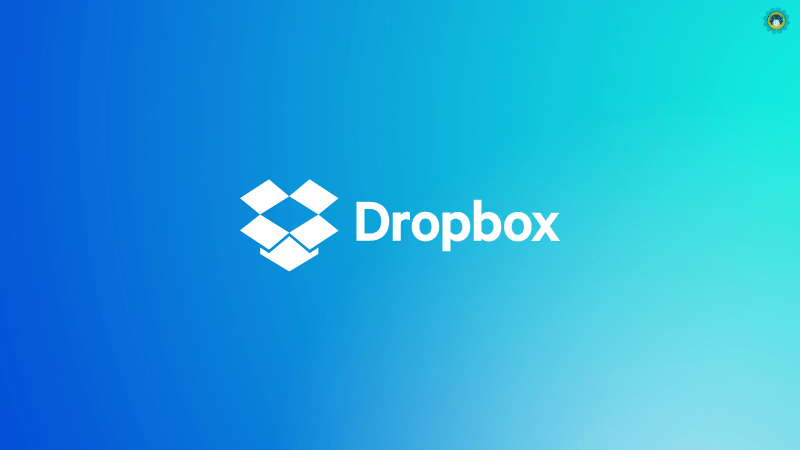
One of the earliest and most popular cloud storage service providers, Dropbox, is also one of the earliest services to provide native Linux client.
I have been using Dropbox since 2009 and have been using it on Linux since 2010-11. Dropbox is the reference point when I compare other cloud services.
Dropbox integrates well with the Linux environment. It creates a dedicated Dropbox folder in your home directory. You can choose which folders from the cloud to sync on your local disk.
A green checkmark is added to the folders that are in complete sync with the remote cloud server.
Dropbox has an intuitive web interface. You can read all kinds of documents in the web interface without downloading them. The web gallery for photos is also a nice feature.
Dropbox has kept innovating and introducing new features to become one of the best cloud services out there. There are additional features in their paid plans for both individuals and enterprises but I’ll keep the focus on the free offering here.
While it does not offer a lot of free storage in its basic version, a sleek web interface and an excellent desktop client make it a smart choice for Linux users.
Pros
- 2 GB of free storage (that can go up to 16 GB if you invite more people)
- Excellent desktop client for Linux and other platforms
- Link sharing, Collaboration
- Files can be viewed in the web interface itself
- Selective sync to save space on the desktop
- Version control
Cons
- Only 2 GB of free storage is a downside
- No encryption in the free option
- You can use it only on three devices simultaneously
2. Internxt
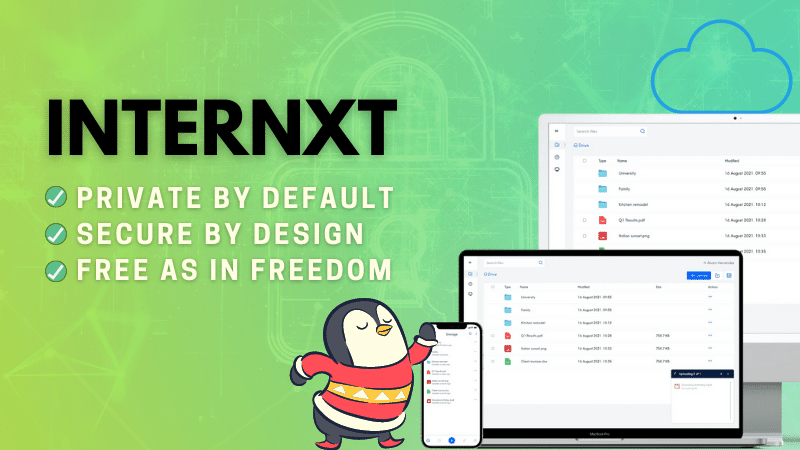
Internxt is an open source, GDPR-compliant cloud storage service based in Valencia, Spain. It is the first cloud storage service to use post-quantum encryption. It is also a zero-knowledge company, meaning nobody except you can access your files, as the encryption key is managed on your device.
Internxt offers 1GB of free storage. In the past, the free storage could be expanded up to 10 GB by ‘completing challenges’ like downloading its mobile app. Not sure if it is still the case.
Still, Internxt's paid offerings are super affordable, specially if you opt for the lifetime plan. Not only you get 1 TB of storage in a single payment of €180, you also get encrypted VPN for up to 5 locations and an Antivirus built into Internxt Drive to protect your files and device from malware.
Their Premium and Ultimate plans will also include access to Mail and Meet once they’re released later this year. A complete privacy package.
Pros
- Open source
- Includes VPN and Antivirus
- Zero-knowledge and post-quantum encryption
- Affordable lifetime price
Cons
- Cannot be self-hosted despite being open source
- Must use apps for large files
- Limited storage for the free plan

3. pCloud
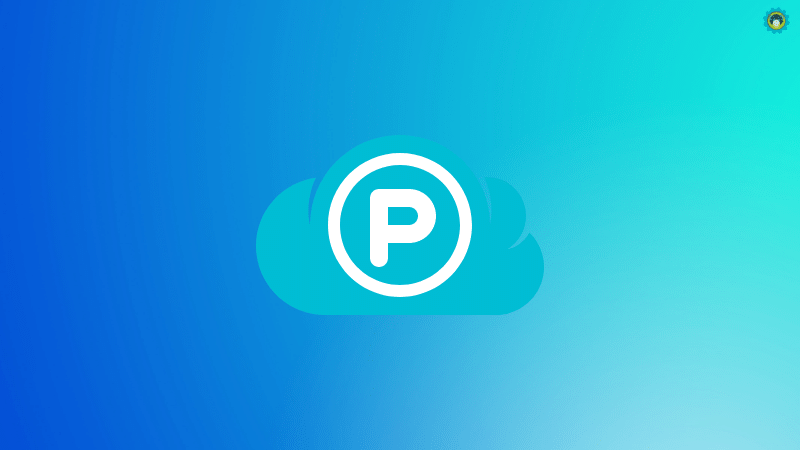
is a Swiss-based offering. Switzerland is known for its strict privacy policies guarding the data of the individuals from snooping agencies.
Plenty of privacy-focused services like ProtonMail are based in Switzerland. It is focused on encryption and security. So, that is a good aspect of pCloud.
In addition, it lets you choose your cloud storage location when you set up (EU or US). I don’t see a lot of cloud storage providers offering this choice, which is unique.
Also, you can use pCloud to back up your entire Linux system. That can come in handy for some.
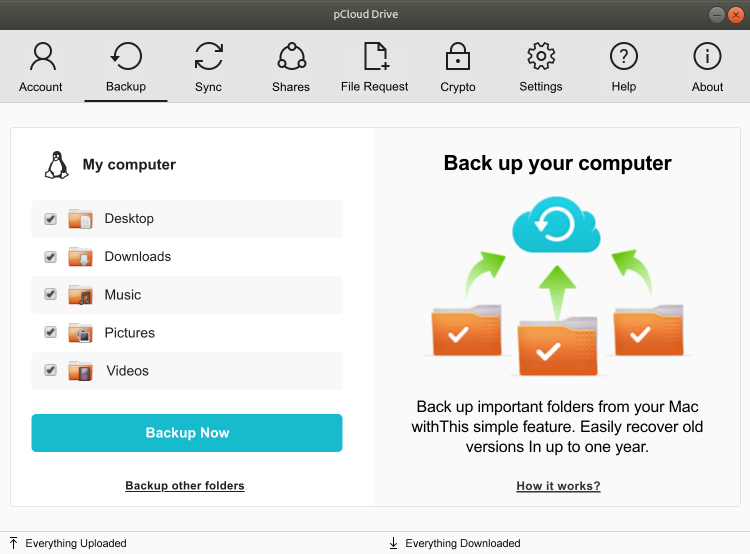
pCloud offers up to 10 GB of free storage for each signup. You may need to install the mobile app and do a few things to unlock 10 GB of free storage. Furthermore, you can further increase it by inviting friends, sharing links on social media, or through their referral/affiliate programs.
If you want to go for a premium plan, I suggest which is quite pocket-friendly. I use their 2 TB lifetime plan.
It has all the standard features such as file sharing and synchronization, selective syncing, etc. Moreover, pCloud provides file versioning and data recovery for up to 30 days. If you are ready to step it up, you can also pay a premium to have backup/history for up to 365 days, which is a massive offering for power users.
pCloud has native clients across platforms, including Linux, of course. Linux client is easy to use and worked well in my limited testing on Linux Mint.
Pros
- 10 GB of free storage, extendable up to 20 GB
- A good working Linux client with GUI
- Allows collaboration by link sharing
- 30 Days backup for deleted files
- Unlimited file size upload
- Built-in audio and video player
- Mobile apps allow camera roll upload
- Backups from Dropbox, Google Drive etc
- 5 copies of files on different servers
Cons
- Client-side encryption is a premium feature
- The web UI seems dated
4. Mega
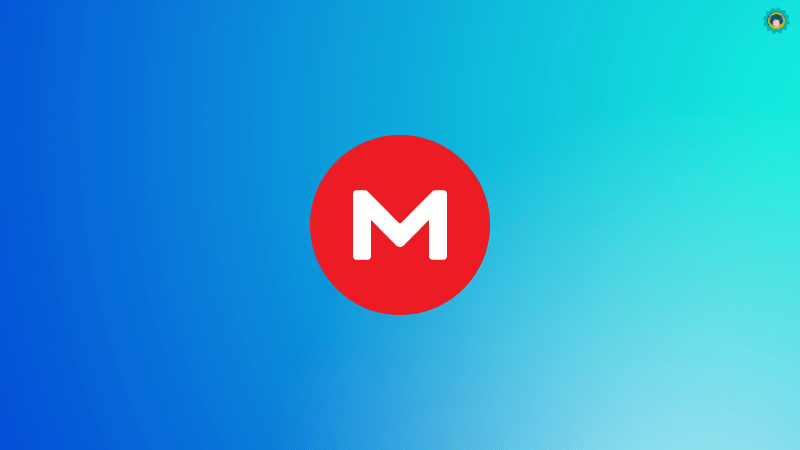
Mega has everything that you would expect in a hassle-free cloud service. It provides 20 GB of free storage to individual users out of the box and may offer you options to earn more free storage after you sign up.
Technically, that’s how the free plan works now. A few years back, 50 GB of free storage was the offer.
It features end-to-end, zero-knowledge encryption by default without needing to opt for a premium plan. So, that can be an attractive offering for privacy enthusiasts.
In addition to that, it provides native clients for Linux and other platforms. The native Linux client works fine, and the device sync is seamless. You can also view and access your files in a web browser. It can even play video files on the web interface,
Pros
- 20 GB of free storage
- End-to-end, zero knowledge encryption for free
- Can be used for sharing large files
- Native clients for Linux and other platforms such as Windows, Mac OS X, Android, iOS
Cons
- Zero knowledge encryption also means if you lose the key, you lose the data
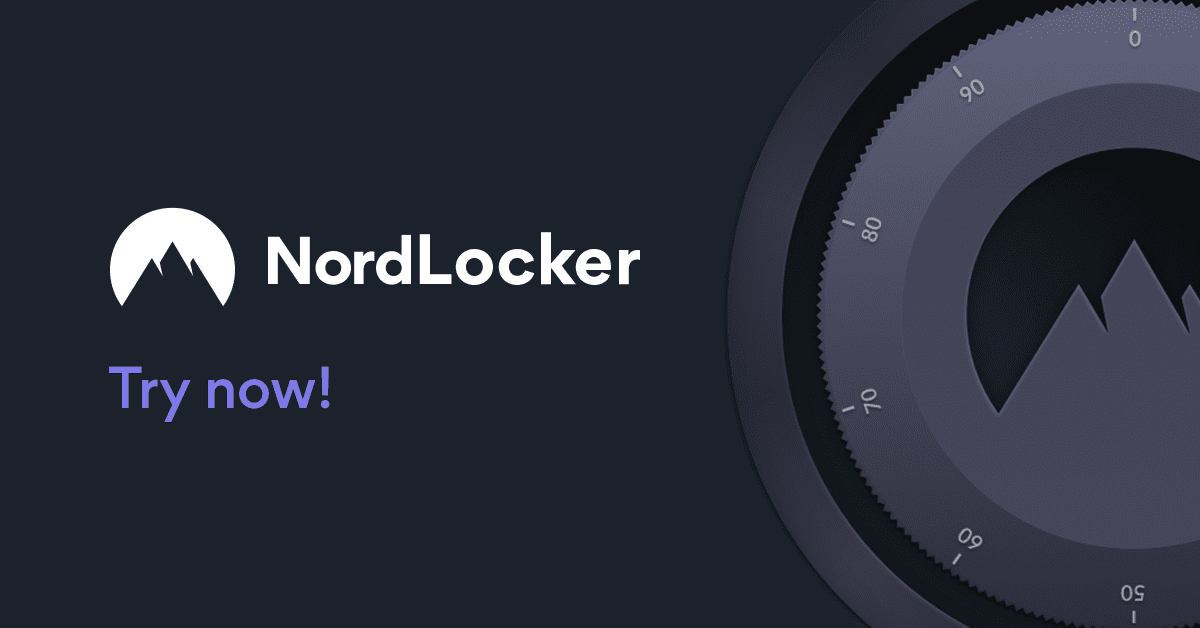
5. Google Drive (with third-party desktop clients)

Google Drive is an incredibly popular service. It gives you 15 GB of free storage that is shared with your email, documents, and photos.
The best feature, in my opinion, is the inclusion of the online office suite with Google Drive. Easy to create documents and store them in the account.
However, despite repeated requests, tech giant Google has not bothered to create a native official Linux client for Google Drive. Thankfully, there are other ways to use Google Drive in Linux. That’s the reason why I included Google Drive in this list of cloud software for Linux.
Pros
- 15 GB of free storage
- Link sharing
- Collaboration
- Integrated with an online office suite
Cons
- No official desktop client for Linux
6. Yandex Disk
Russian internet giant Yandex has everything that Google has. A search engine, analytics service, webmaster tool, email, web browser, and a cloud storage service.
Yandex Disk offers 10 GB of free cloud storage on sign-up. It has native clients for multiple platforms, including Linux. However, the official Linux client is only command line. You can get an unofficial GUI client for Yandex disk, though. File sharing via links is available along with other standard cloud storage features.
People who are already using Yandex services should give it a try.
Pros
- 10 GB of free storage, extendable up to 20 GB via referrals
- Mobile apps
Cons
- Only command line client available
- If you are averse to Russian technologies
7. Cozy

Cozy is a French company that gives you 5 GB of free cloud storage. In fact, Cozy is more than just a free cloud service. It’s a digital locker for securely keeping your bank statements, bills, and health reimbursement.
You are probably already saving your important documents, tax receipts, identity cards, and warranty receipts in the cloud. You scan these documents manually and then upload them to a cloud service. Cozy does all this for you automatically.
Cozy could be a lifesaver for managing all your documents if you are a French resident. Cozy has something called an ‘app store.’ You can connect your Cozy account to numerous services such as your bank, internet service provider, insurance providers, and commercial stores like Darty, Leclerc, etc. You can also connect it with French income tax accounts.
Cozy fetches all the bills and invoices from the linked services and stores it in the cloud. You get all the documents in one place automatically.
Everything included, it also makes the core server stack open-source. You can check that out on GitHub if you’re curious.
Pros
- 10 GB of free storage
- Native Linux client in AppImage format
- Connects to various online services and automatically gets invoices and account statements
- Cross-platform with mobile apps
Cons
- Could be confusing for a simple cloud service
- At present, the focus seems to be on French market
8. Seafile (can be self-hosted)

Seafile is a free and open open-sourcesource file hosting and collaboration platform. Apart from file hosting and sharing, you can also edit documents online. Seafile keeps versions of files and snapshots of folders so that they can be restored to a previous version.
Since it’s a multi-user collaboration platform, you can also set file permissions or lock a file for specific users. Audit logs are also available. Admins can also remote wipe data. All data transfers are protected via HTTPS/TLS protocol. Server-side data encryption is also a feature.
The free edition allows three users. If you need more than three users, you can either host it on your own server or pay for the services.
Pros
- Free and Open Source Software
- Native Linux client and mobile apps
- File versioning
- Document editing and collaboration
Cons
- Primarily aimed at enterprises
- Professional edition has a better feature set than the free community edition
9. Nextcloud (can be self-hosted)

Nextcloud is a free and open-source cloud storage and collaboration platform that you can install on your own server. It’s not entirely free if we consider that you don’t have a server in the first place. But, if you have one, you don’t need to spend anything more to use Nextcloud, but only the expertise needed to configure and manage your self-hosted Nextcloud instance.
Nextcloud is a complete collaboration platform for small and medium-sized businesses. Apart from the cloud storage, you can also use Nextcloud for mails, contacts, and calendars for users in your organization.
It’s a complete productivity suite that can be hosted on your organization’s servers. In fact, we at It’s FOSS used Nextcloud for our work task managements as well.
You can install Nextcloud with Docker easily. Alternatively, you may go through a list of providers to help you get started with Nextcloud. PikaPods is also a good way to self host NextCloud.
Pros
- Free and Open Source software
- Complete control on your data
- A complete productivity suite
- Useful for small and midsize organizations as well as individuals
Cons
- Not a managed cloud service
- No free tier from Nextcloud and most third-party
- You’ll need your own server and manage it manually
10. OneDrive (using third-party clients)
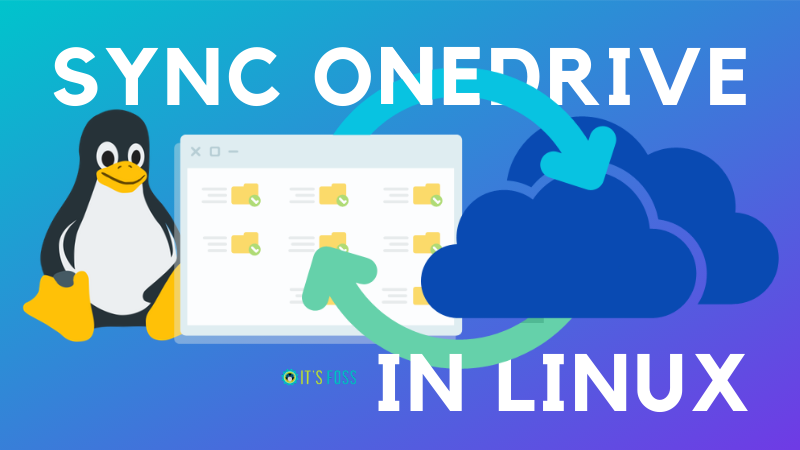
If you work with Microsoft 365 apps on the web browser, you will probably like the option of using OneDrive better than others.
Even though it just gives 5 GB of free storage, you have Skype and other Microsoft 365 app services included with paid plans if you need it for work. Officially, there’s no native Linux client, but you can refer to our guide and use OneDrive on Linux flawlessly.
Pros
- Microsoft 365 services integration
- Collaboration
- Link sharing
Cons
- No official native Linux client
- Not a lot of free storage
11. Icedrive
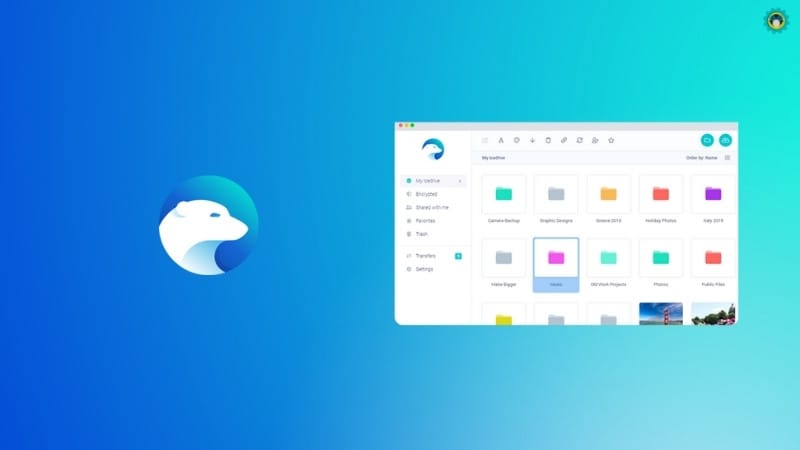
Icedrive can be a suitable alternative to MEGA, where you get client-side encryption enabled by default for all premium plans. To start with, you get 10 GB of free storage.
UK-based Icedrive claims to constantly add new features and security improvements to the platform to stay out of the crowd. Also, it offers you a 14-day money-back policy to test drive the premium service before you make up your mind.
It is also very pocket friendly with 1 TB of cloud storage for just $149.
For Linux, it offers a GUI client in the form of an AppImage file or a snap package. This way, you can access your files from your desktop. It’s not the same as its Windows counterpart, though.
Pros
- 10 GB free storage
- Client side encryption
- Collaboration
- Link sharing
- Stats on storage using
- See all public links in one place
Cons
- App mounts the files as a virtual drive, not syncs like Dropbox (could be considered a pro)

What is your favorite cloud service for Linux?
As I said previously, I use multiple cloud services so that I can get sufficient cloud storage.
I use Google Drive because it integrates with Gmail and Google Docs is a pretty good office tool.
I use Dropbox and have 22 GB of cloud storage with them. I use it for storing ebooks, important documents and some earlier photos.
I have 2 TB of lifetime storage with pCloud. I use it for dumping all kind of photos and videos from the phones of all family members.
I also have around 50 GB of cloud storage with Mega. I use it for storing screenshots and screencasts for the tutorials.
And lastly, I also have 2 TB lifetime storage with Internxt. This is a recent addition and I am using it as secondary backup because you can never have enough of them.
Oh! I forgot. We have our own Nextcloud instance deployed using Docker. It is used for collaboration and task management in It’s FOSS team.
What is your choice among this list of best cloud storage services for Linux? Which one do you prefer?
Let me know your thoughts in the comments down below.




